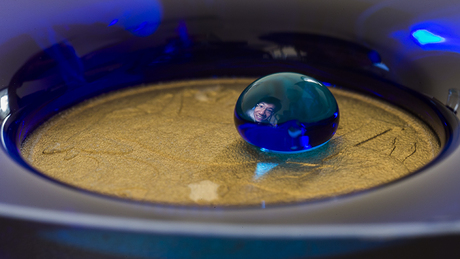Nanoparticle coating can repel water

Scientists at The Australian National University (ANU) have developed a water-repelling coating that could one day be used to waterproof mobile phones, prevent ice from forming on aeroplanes and protect boat hulls from corroding. Their work has been published in the journal ACS Applied Materials & Interfaces.
Developed in the university’s Nanotechnology Research Laboratory, the superhydrophobic coating has been created by combining two plastics: one tough and one flexible. This makes it more robust than other superhydrophobic coatings, which are susceptible to wear damages following breakage of their nano/microstructures.
“It’s like two interwoven fishing nets, made of different materials,” said ANU PhD student William Wong. This gives the new material its extreme robustness and strength, he said, as well as transparency and resistance to ultraviolet radiation.
“The surface is a layer of nanoparticles, which water slides off as if it’s on a hot barbecue,” said Wong.

The team developed two ways of creating the material, both of which are cheaper and easier than current manufacturing processes. One method uses a flame to generate the nanoparticle constituents of the material. For lower temperature applications, the team dissolved the two components in a sprayable form.
Associate Professor Antonio Tricoli, head of the Nanotechnology Research Laboratory, said the coating is “able to stabilise very fragile nanomaterials, resulting in ultradurable nanotextures with numerous real-world applications”. For example, he said, “It will keep skyscraper windows clean and prevent the mirror in the bathroom from fogging up.”

In addition to waterproofing, the ability to control the properties of materials could also be applied to a wide range of other coatings, according to Wong. “A lot of the functional coatings today are very weak,” he said, “but we will be able to apply the same principles to make robust coatings that are, for example, anti-corrosive, self-cleaning or oil-repellent.”
Microplastics found to alter the human gut microbiome
Microplastic-treated cultures showed a consistent and significant increase in acidity (lower pH...
Sustainable, self-repairing, antimicrobial polymers developed
From medicine to electronics and optics, new materials developed by scientists at Kaunas...
A better way to create conductive polymers
New research disproves the longstanding belief that to create conductive polymers, substances...





